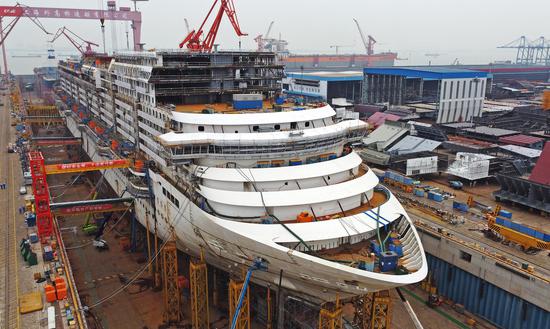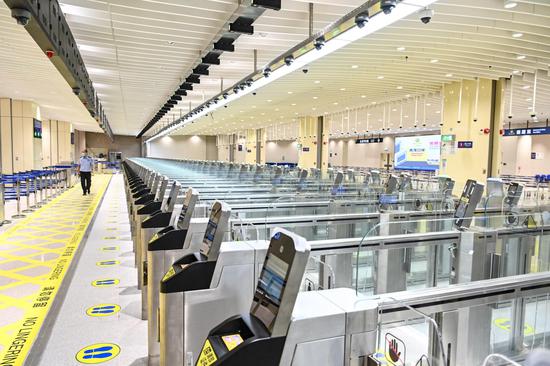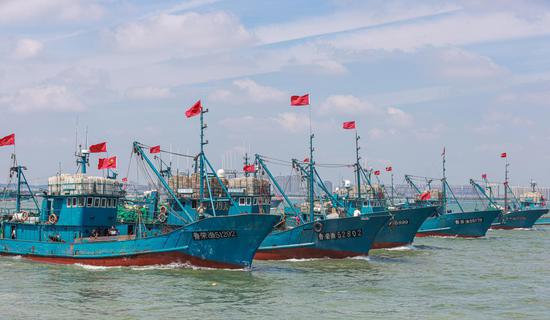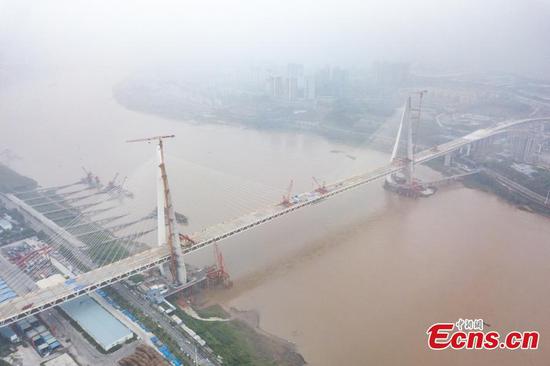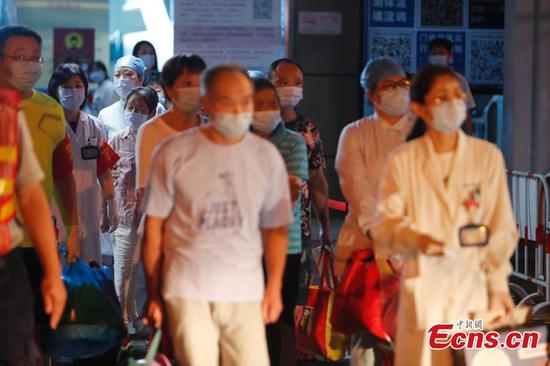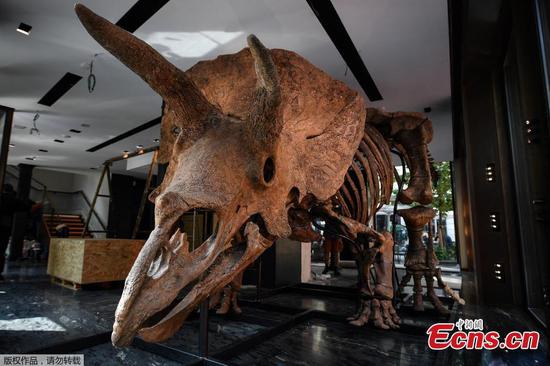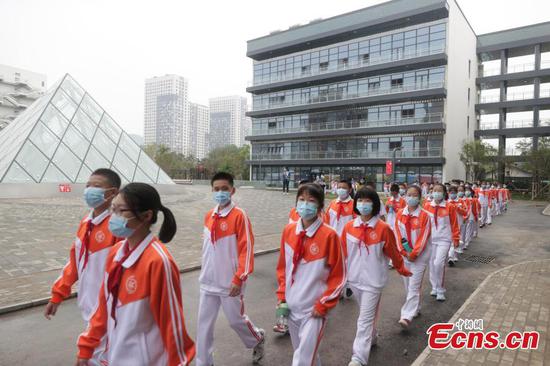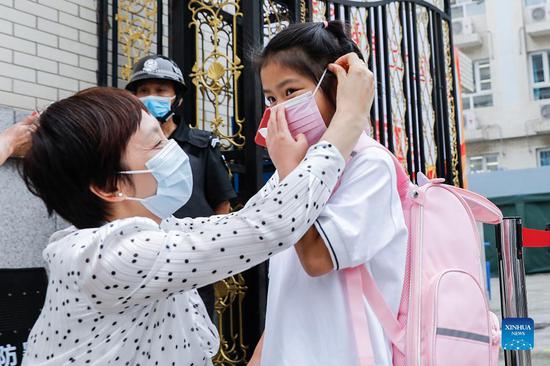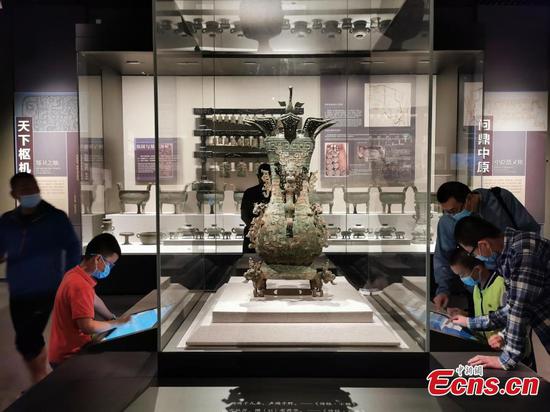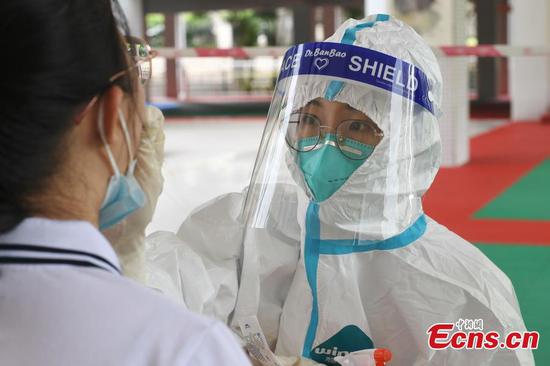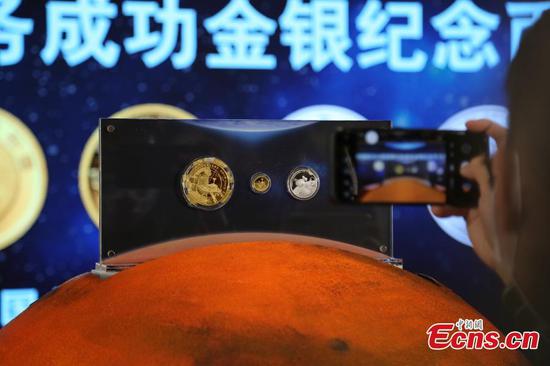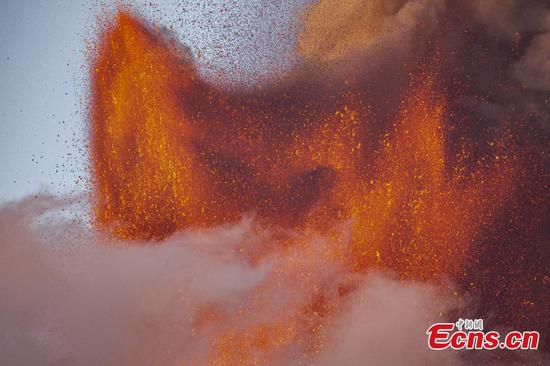The root cause of the U.S. fentanyl abuse is "in itself," and Washington is "purely wrong" to "groundlessly criticize China and spread disinformation," said the Chinese Embassy in the United States on Thursday.
"This would only set up obstacles to our cooperation. It is hoped that the U.S. side will face up to its own problems, come up with practical solutions, and learn from international experience to safeguard the health and wellbeing of the American people. We sincerely hope that the United States can solve its opioid abuse crisis at an early date," said a spokesperson of the Chinese embassy in a statement.
ROTTEN FABRICATIONS
"For all the goodwill and sincerity of the Chinese side, for all its strenuous efforts and huge sacrifices, as well as the great achievements of China-U.S. cooperation in drug control," it is disappointing that some American politicians and media are spreading such toxic disinformation as "American fentanyl mainly origins from China," the spokesman said.
"They even claim that China often delays the requests from the U.S. side. These assertions are highly irresponsible and utterly false," said the spokesperson.
In response to the rumor that Chinese fentanyl precursors flow into the United States via Mexico, the spokesperson said that China has never found any scheduled precursor chemicals trafficked to Mexico, or received any notification from the Mexican side about seizing scheduled chemicals originating from China.
"Such made-up allegations show zero sense of responsibility towards American fentanyl abuse victims and their families, and seriously mislead the Chinese and American people. They are not in the least helpful for the United States to solve its drug problem and should be rectified as soon as possible," the statement read.
On May 22, 2020, without any evidence, the U.S. Department of Commerce added the Institution of Forensic Science under China's Ministry of Public Security and the Chinese National Narcotics Laboratory onto its "entity list."
"This action has seriously affected China's examination and identification of fentanyl substances and hindered the operation of its fentanyl monitoring system," the spokesperson said. "China has expressed serious concern and protest to the U.S. side through various channels."
Labelling narcotic drugs as a common enemy of mankind, the spokesperson said, "The Chinese government takes a 'zero tolerance' attitude to drugs. It has been rigorously combating drug production, trafficking and other kinds of drug crimes."
U.S. FENTANYL CRISIS
The Chinese side empathizes with American people who are suffering from the opioid crisis, and has been offering sincere and law-based assistance to the international community, including the United States, in dealing with fentanyl abuse, said the spokesperson.
From 2017 to 2018, China scheduled control over six fentanyl substances and two precursor chemicals, more than the number of varieties listed by the United Nations at that time.
On May 1, 2019, the Chinese government took the lead globally in officially scheduling fentanyl substances as a class, though there was no large-scale abuse or prominent hazards of them in China.
"In contrast, as the biggest producer and user of fentanyl drugs in the world, the U.S. has a fentanyl problem more rampant than other countries, but it has not officially scheduled fentanyl substances permanently yet. The reasons behind are worth pondering. Here, we urge the U.S. side to permanently schedule fentanyl substances as soon as possible," the spokesperson said.
According to the U.S. Centers for Disease Control and Prevention, in 2020, the number of drug overdose deaths in the United States reached a record high of 93,000, among which 69,700 were caused by opioids overdose, up by over 30 percent year-on-year.
Against the backdrop of increasingly strict control of fentanyl substances in the world at large, America's worsening fentanyl crisis and the resulting rise in deaths have shown that it has not addressed the crux of the problem, said the spokesperson.
CHINA'S STANCE
"China advised the U.S. side, out of goodwill and many times, to strengthen supervision and regulation of fentanyl-related prescription and raise public awareness about it, which have been proved worldwide to be effective solutions," the spokesperson said.
China's National Narcotics Control Commission and the Ministry of Public Security have maintained close, candid and in-depth coordination with their American partners, including the White House Office of National Drug Control Policy, the International Narcotics and Law Enforcement Affairs Bureau of the State Department and the Drug Enforcement Administration.
China has made every effort to improve its legal and regulatory framework to control fentanyl sales, and investigate and combat online sales. Notably, China has required its postal and parcel industry to take specific measures to combat the trafficking of fentanyl substances and other scheduled chemicals via post services.
"These measures have produced notable results and have been widely recognized by U.S. law enforcement partners, who have expressed appreciation on many occasions and called drug control a highlight in our bilateral law enforcement cooperation," the spokesperson said.
According to information offered by U.S. anti-drug authorities, since September 2019, the United States has not seized any fentanyl or its analogues originating from China.
"At the same time, China attaches great importance to multilateral international cooperation in drug control, and has been actively participating in global drug governance," the spokesperson said.
"We are ready to work with various countries, including the United States" to promote international co-governance on the fentanyl issue, share experience in drug control and address the drug problems together, said the spokesperson, noting, "The Chinese government has taken a consistent and resolute stance on drug control." Enditem










